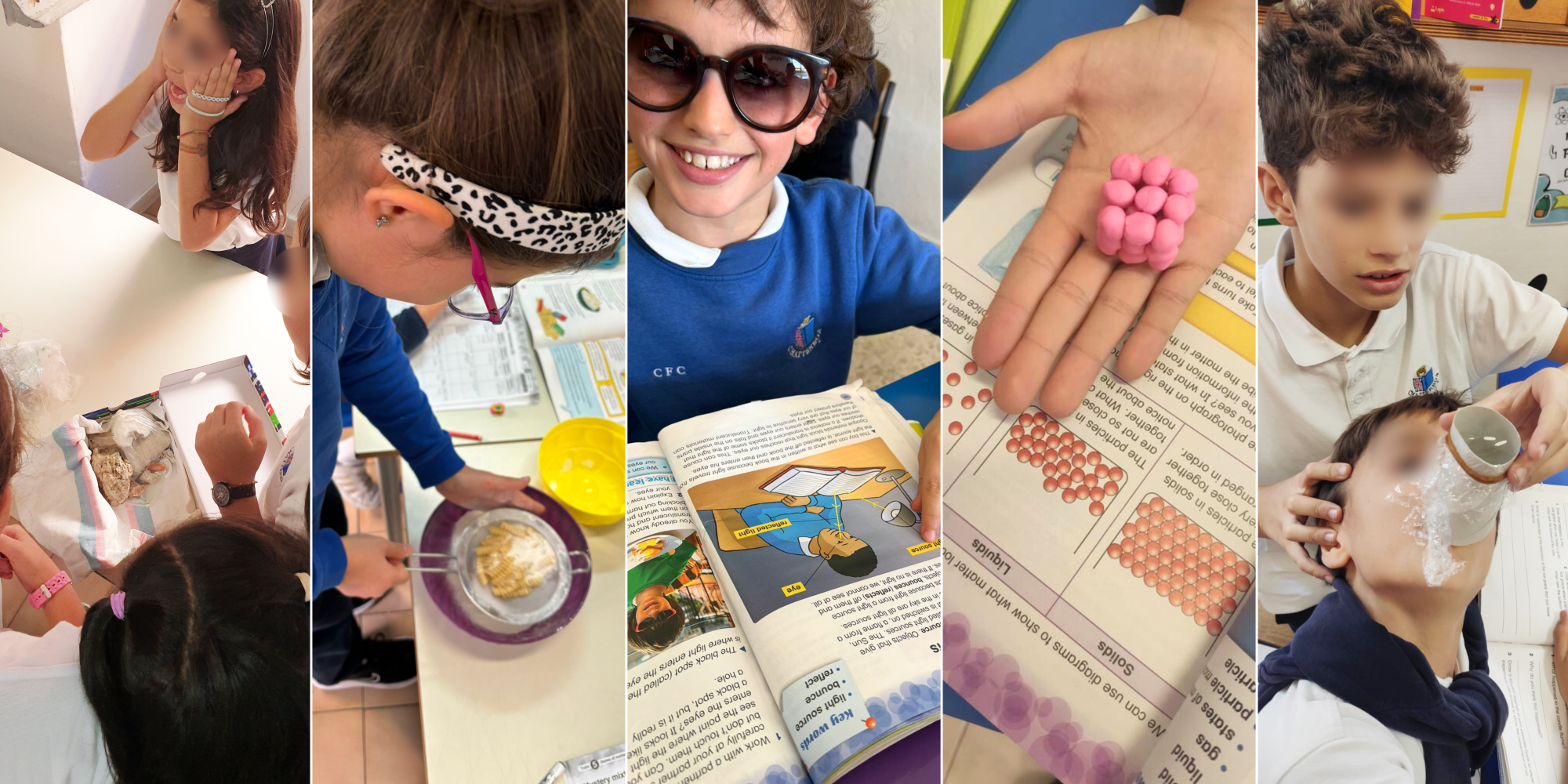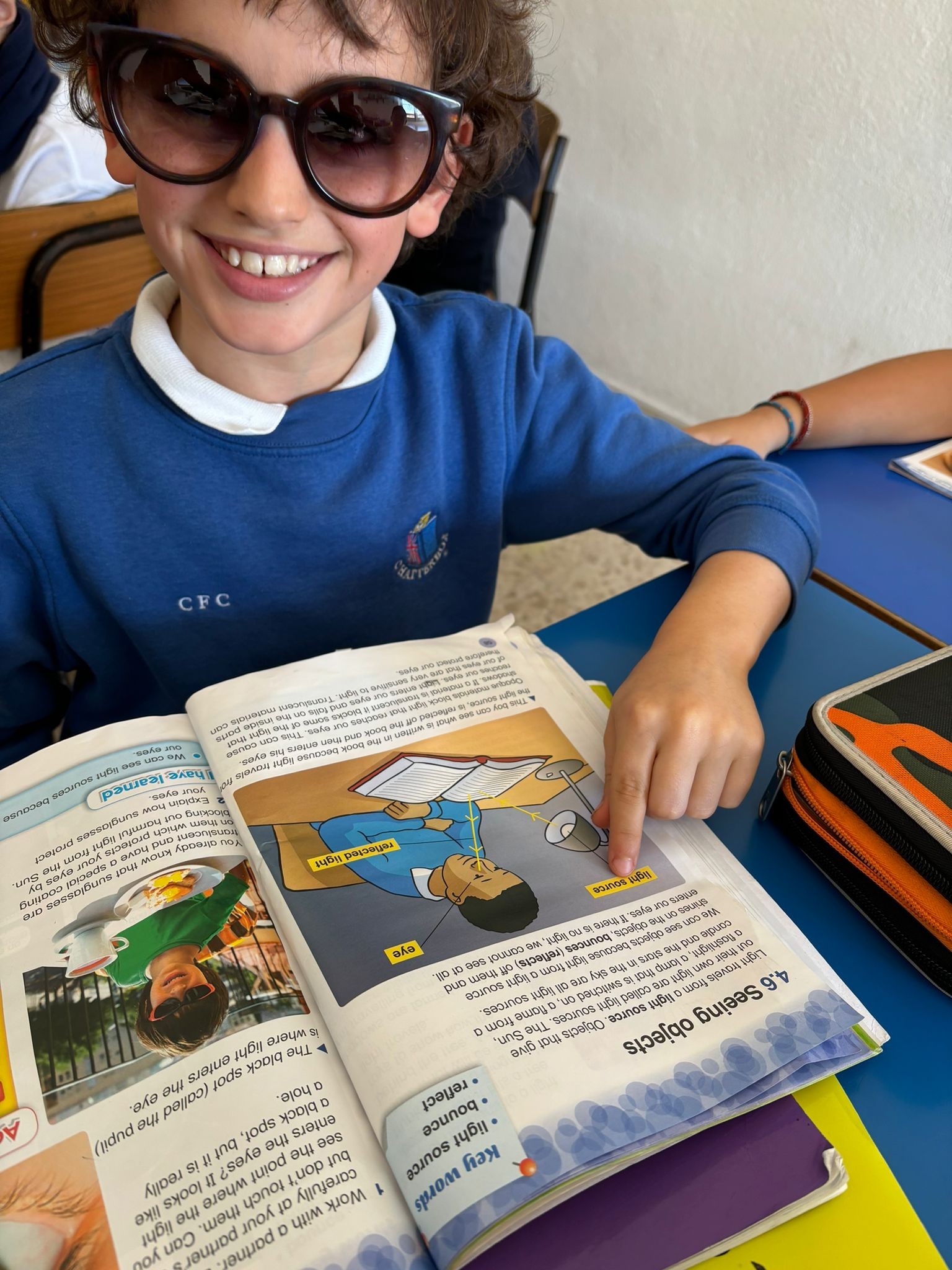Chatterbox Srl | Via Tempio 15 (front office via Tempio 27)
09127 - Cagliari (CA)
+39 070 773 8269
CLOSED 25th-26th April 2024

Explore, experiment and learn 👩🔬🧪⚗️🧲🔎
• Practical lessons
We believe that Science is not just about reading a book but about engaging children in practical experiences too!
Science lessons for Years 3, 4 and 5 follow a programme that emphasizes hands-on experimentation with activities designed by Miss Bryce to encourage children's natural curiosity, nurture their creativity and stimulate their desire to discover.
This year the classes have done lots of hands-on experiments during their science lessons.
For example, in Year 3 whilst studying fossils, the class was visited by a geologist who brought in different samples of fossils which they were allowed to touch and look at! Whilst learning about states of matter the class did many experiments including making their own paper boats to investigate floating and sinking, separating mixtures using different techniques including magnets, sieves and filters and setting up an experiment using liquid soap, food colouring and different types of milk to observe the best reaction.
_226.png)
In Year 4, the children learned about energy and light; observing how light passes through different types of materials (opaque, translucent and transparent) by using a torch and shining it on to different materials, they also observed a “newton colour wheel” and an “optical prism” showing how white light is created and refracted. Whilst studying states of matter they made a baking soda volcano observing an exciting chemical reaction.

The Year 5 students, whilst learning about changes of state, set up an evaporation experiment to find out under which conditions evaporation occurred fastest and also made their own particle models out of plasticine. Whilst investigating forces and air resistance, the students made their own parachutes and tested them out in the school playground.
_110.png)
• Benefits from “hands-on” activities
We know that children learn best when they are able to see for themselves, touch and do activities. Therefore, the small scientific laboratories that we set up in our lessons provide a valuable "hands-on" approach which allows subsequent observation and analysis of the results.
At the same time, children also practice their motor and coordination skills by manipulating various tools and materials. Furthermore, these experiments promote the spirit of collaboration and teamwork, encouraging students to discuss, share ideas and solve problems together.
• The science programme
As set out in the curriculum for Cambridge International Primary Science, the program comprises six core strands: biology, chemistry, physics, Earth and space, thinking and working Scientifically and science in context.
Within the Cambridge International community teachers around the world have the opportunity to access a range of online resources, including assessment materials, curriculum frameworks, training, schemes of work and refresher courses.
Furthermore, there are some assessment options, such as the Cambridge Primary Progression Tests and the Checkpoint Exam, which allow us to have an insight of the progress of the class, individual students and to adapt the teaching programme to the needs of our school.
For more information, you can consult the official Cambridge International website.